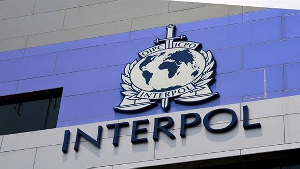The Ghana Immigration Service (GIS) and Customs Division of the Ghana Revenue Authority (CD-GRA) have taken steps to operationalize processes to secure the borders of Ghana through an Integrated Border Management approach.
This was contained in a communique issued by the two agencies at the end of a-three-day workshop held at Dodowa in the Eastern Region.
It noted that the two agencies were working together to establish an Integrated Border Management (IBM) to provide effective and efficient border management in the country, stating that, as part of the processes the two agencies have agreed to jointly patrol the borders, share intelligence and information, use resources common to the two agencies, undertake joint operations and investigations as well as training.
The communique noted that the initiative started in the year 2014 with a-five-member technical committee from the two agencies tasked to come out with a Memorandum of Understanding (MOU) and Standard Operating Procedures (SOP). The initiative received further boost with the reconstitution of the committee in July this year to finalize the MOU, SOP and the design of an implementation plan, it added.
It indicated that global trends revealed the harmonization of border management of customs and immigration operations towards efficient facilitation of travel and trade among nations and decisive onslaught against transnational organized crime.
It said the two agencies have agreed to pilot the IBM project at the Aflao Border Post and later extend it to all Border Posts.
“The two agencies have also drawn up an implementation plan and detailed manual on operational procedures to support the practical implementation of the IBM”, it stated.
It recognized that the current border management system in the country was uncoordinated, ineffective and inefficient. This it said was due to lack of cooperation between border agencies owing to the lack of appropriate legal and administrative framework.
The communique noted that a Memorandum of Understanding (MOU) had been developed to finalize and give effect to the agreement.
The three-day workshop was under the auspices of Danish International Development Agency (DANIDA)
General News of Tuesday, 19 December 2017
Source: supt. michael amoako-atta

















